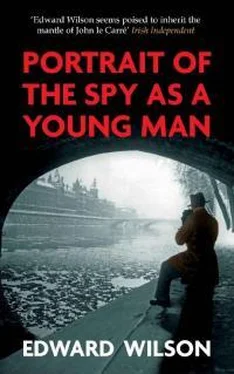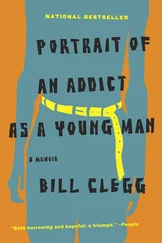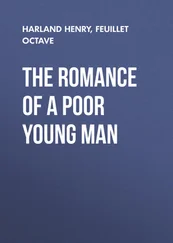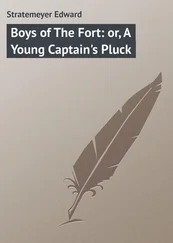For a second Catesby was tempted to address Major Jepson as Dr Freud, but decided such sarcasm would wreck his chances of getting into SOE. On the other hand, maybe Jepson’s interest in psychological motivation was why he was a successful crime writer. Catesby remained silent while Jepson stared, expressionless, at the blackout curtain and waited.
‘I think, sir, that may be partly true. But another reason is that I love my country – I know that must sound young and naïve.’ Catesby paused. ‘But it’s not just Britain, I don’t want to see Europe crushed by barbarism.’
‘Most of Europe is Roman Catholic. You seemed very dismissive of your mother going to mass several times a week. Are you a practising Catholic?’
‘No, sir. I lost my faith when I discovered my brain.’
Jepson nodded. ‘That’s a very French Enlightenment answer.’
‘Thank you, sir. I love eighteenth-century French literature.’
‘And what about Zola?’
Catesby could see that Jepson was checking out the lefty rumours. He answered unabashed. ‘I admire Zola’s bravery in standing up against injustice.’
The interview ended after exactly forty-five minutes. Catesby was told that he would be called back in a few days if he passed further background checks. Jepson directed him to leave by a door opposite the one by which he had entered. They didn’t want the interviewees to see each other. Catesby realised that his having briefly caught sight of the small young woman had been a mistake.
The second meeting was two days later in the same office, but the uniform had changed. Jepson had been demoted two grades and was wearing the uniform of a major in the Buffs. Jepson offered no explanation for the change of service and rank – and Catesby thought it unwise to ask. He suspected, however, that Jepson’s wearing his own uniform signalled an end of prevarication. Likewise, the interview was more direct and frank. It was no longer a question of whether or not to accept Catesby into SOE, but how he could best be used – and whether or not he still wanted to volunteer. ‘Your chances of surviving,’ said Jepson, ‘are one out of two.’
Catesby quickly calculated that his chances were about the same as a Battle of Britain pilot.
‘My job,’ said Jepson, ‘is deciding whether or not I’m willing to risk your life – and I’ve decided that I am. Your job is now to decide whether or not you want to take that risk. Don’t answer now. I want you to go away for a couple of days and think about it. This shouldn’t be a rash decision.’
There was an awkward silence. The naked light bulb flickered and Catesby tried not to fidget – or smile at the major’s on and off again face.
‘One more thing,’ said Jepson, ‘and this is very important. You must not discuss any of this with anyone, no matter how close they are to you. The decision is yours and yours alone.’
The third interview, the next morning, was short and sweet. Catesby simply said, ‘Yes, I’ll volunteer – and I have no reservations about doing so.’
The first place Catesby was sent for training was a grand Tudor manor house with private parklands. Previous guests included Queen Victoria and Otto von Bismarck. Gladstone had sometimes held cabinet meetings there. Catesby finally understood the joke that SOE stood for ‘Stately ’omes of England’. If it hadn’t been for the war, Catesby and many others like him would never have set foot on such privileged grounds.
The head of the training school was a Cold Stream Guards officer in his sixties who led morning runs from the front. He was tall and slim with a black moustache slightly flecked with grey. His voice was soft and polite, even though the words were hard and stern: ‘Leaving these grounds is forbidden unless you are accompanied and have written authorisation. Use of the telephone is forbidden. You will hand me all your identity documents. You will only be known by your codename and will not reveal any details of your past to your fellow trainees. You will also hand to me any notebooks or cameras in your possession as well as any valuables and money in excess of five pounds. If you can’t take the rigours of this course, you will be reassigned.’
Catesby did well. A lot of the course covered what he had already learned in the infantry – map-reading, weapons, identification of enemy units and ranks – but the heart of the training was learning to be ruthless and cunning. Hand-to-hand combat was savage and utterly merciless. You had to overcome any feelings of compassion or revulsion. One highly recommended method of executing a sentry with a silent kill was a commando knife straight up the rectum: ‘Ever try shouting when you’re breathing in?’ If you didn’t have a knife, a pencil through the eye was a useful expedient. And, if you didn’t even have a pencil, a finger in the mouth was very effective. As the instructor, who always wore black cords and a polo neck, pointed out, ‘The human mouth is a very vulnerable organ even when it isn’t screaming for help. The flesh tears surprisingly easily. Once you get a finger in the corner of a mouth, you can rip open the cheek all the way to the ear. They don’t like that. Puts them off their stride. And then you kick them in the balls. Or, in the case of an officer, the testicles. Kicking, grabbing, twisting, ripping and tearing male sex organs is always effective. And pretending to offer fellatio can be a deadly trick if you’ve got sharp teeth.’ One of the trainees gave a nervous twitch. ‘We are not here,’ said the instructor, ‘to teach you to be proper ladies and gentlemen.’
One in five of those in Catesby’s training group were women. They were also a mixed lot in terms of nationality and social background. He not only heard voices speaking cockney English, but voices speaking French with a cockney accent – not to mention every regional French accent from Flanders to Marseille. There were also a number of plummy voices – and ones that, Catesby suspected, were fake plummy. The trainees were not allowed to reveal their backgrounds, but Catesby was certain there were Spaniards, Poles, Italians and other nationalities. A diversity of trades and professions was also revealed by trainees who exposed expertise in fields such as railway engineering, telephones, medicine, forestry, forgery and burglary.
The training included a lot of surprises. One was that the bar was open all day. In fact, the recruits were encouraged to drink so that their behaviour could be observed when they had too much. There were also a lot of women around in the bar. Most of them were not trainees, but members of FANY, the First Aid Nursing Yeomanry. The FANY girls were mostly posh well-connected women who provided clerical support and administration for the training school. They were also fantastic drivers who hared around dark country lanes with only sidelights for illumination. The FANY women had another mission: flirting with SOE recruits in the bar to see if drink and the prospect of romance would loosen their tongues. Catesby never fell for it. As a young man with modest self-esteem, he was always suspicious of women who found him attractive. He usually thought they were taking the piss, but at the training school he correctly guessed the posh girl flirting was part of the course.
The instructors, many of whom had returned from missions in France, were full of dire warnings about how carelessness could cost lives. A favourite cautionary tale was that of an SOE agent who was captured only days after being parachuted into France because he looked right instead of left when crossing a road. Catesby’s recurrent blunder, which lasted decades after the war, was getting into the wrong side of a vehicle. But, as with his suspicions of the FANY women, sometimes his reactions were the correct ones. All the trainees were tested with a late-night visit between three and four in the morning. The visit began with a bright light shined into the face of the sleeping recruit. The initial test was to check the first words of the startled trainee. Would they be: What the fuck! (very bad) or C’est quoi ce bordel? (very good). For some reason, Catesby once explained to a non-French speaker, swearing often referred to prostitutes and brothels. Catesby, of course, passed with flying colours. Still half-asleep, he had reverted to childhood and, imagining that his younger sister had come for comfort, replied affectionately, Ça va, ma puce? You all right, love? Regardless of how they replied, the trainees were then dragged away for a brutal mock interrogation which involved ice-cold water, torture and psychological tricks. The manner in which the instructors had transformed into Gestapo thugs was chillingly convincing. So realistic that a few trainees thought the training school had somehow been taken over by the Germans and the rough interrogations were real.
Читать дальше












